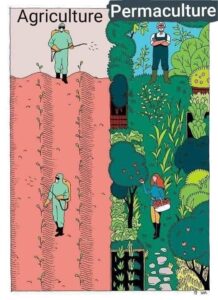Is Organic Good or Bad?

Is organic food a scam to make us pay more for our food? Does it really matter for our health?
The main argument AGAINST organic food is that “conventional” non-organic agriculture that heavily utilizes synthetic chemicals such as pesticides, herbicides, insecticides, fungicides, and fertilizers produces more food and grows it faster, which is needed to support the growing population on our planet.
The main argument PRO organic food is not only that we are poisoning ourselves and our planet with all these synthetic chemicals, but if we continue to destroy our environment at this rate, there will not be a planet to support the growing population.
Why do people choose to buy Non-Organic Food?
The primary reason people choose to buy non-organic or so-called “conventional” food is because it is usually cheaper and more available.
Why do people choose to buy Organic Food?
People who choose to buy organic food intentionally and exclusively might have several motivations. Usually it comes down to what they believe is better for their health and the health of their family, and/or a more ethical choice for the health of the planet.
Where is the evidence?
For a farmer or anyone who has an opportunity to look deeply at the land, the difference between fields or orchards farmed “conventionally” and organically is striking.
“Conventional” farmland that heavily relies on synthetic chemicals looks mostly dead, with the exception of the target crop that is commercially produced.
Did you know that three million tons of pesticides, herbicides, and fungicides are used on this planet each year? ((Goodall, J., McAvoy, G., & Hudson, G. E. (2006). Harvest for hope: a guide to mindful eating. 1st trade ed. New York, Warner Wellness.))
According to Jane Goodall’s book “Harvest for Hope,” it is estimated that only 0.1% of applied pesticides reach their target pests, meaning that all kinds of innocent bystanders suffer.
All kinds of bugs will die as a result, which means no food for the birds. The immune and reproductive systems of honeybees become so compromised by pesticide exposure that they can’t produce honey. Agricultural chemicals run-off enters the rivers and oceans and weaken the immune systems of dolphins, whales, and many other aquatic creatures. They cause birth defects in frogs and other amphibians. When orcas are washed up on the shores of British Columbia they are considered toxic waste.
Pesticides => no bugs, no bees, no butterflies, no birds => no microorganisms in the soil => dead soil => contaminated water => damaged aquatic ecosystem
Did you know that farm chemicals kill off as many as 67 million American birds each year?
If farming chemicals are destroying fauna and flora at such an alarming rate, how can we pretend that we, humans, are not effected?
Do Animals Choose Organic Fruit?
What choices are made by animals who have superior taste and smell capabilities compared to humans?
In her book referenced above, Jane Goodall shares some observations from Keeper Neils Merlchiorsen of the Copenhagen Zoo.
“When given an organic banana, the chimpanzee ate them skin and all. But if they were handed a non-organic banana, the chimpanzees instinctively peeled the skin before eating it.” Animals repeatedly chose organic over commercially produced.
What do you choose?
Organic food is often more expensive, but many people are choosing to eat organic as a way to give back to the world and make a vote for the cleaner planet for their children. Other people are choosing to eat organic because it is better for their bodies.

